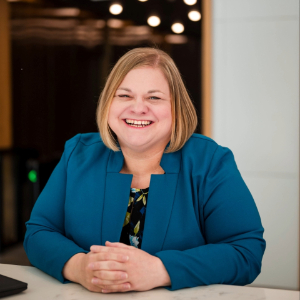How to Improve Your Finances: Wisdom from The Latte Factor

The very first personal finance book that I ever read was David Bach's Smart Women Finish Rich. I was in my early 20s at the time, and it was the financial education I never got in school on how to improve my finances. It opened my eyes to a lot of things - about how spending is a reflection of our values, the power of saving consistently over time, and how to avoid common financial mistakes.
Over the years, I have read some of David Bach's other books as well, so I was looking forward to the release of his latest, The Latte Factor.
This book is different from Bach's other books. It's a parable that teaches basic personal finance concepts through the story of a young woman named Zoey. The text is very readable for a book about personal finance, and Zoey is a very relatable character. If you are having a hard time figuring out how to save for the things you want, I highly recommend it.
3 Ways to Improve Your Finances According to The Latte Factor
Through Zoey's character and the barista who educates her, the reader learns the three secrets to financial freedom. They are as follows:
1. Pay yourself first
I'm sure you've heard it before but are you doing it? It's very common for people to save what's left after they spend rather than spending what's left after they save. This makes it very difficult to save for long-term goals. It is as simple as putting money away into savings every single time you have income. You don't have to start with a large amount - start somewhere.
In the book, the barista recommends that you save the first hour of your pay every day. Thus, if you make $200/day and work 8 hours per day, then you should save $25/day.
"It's usually the simplest ideas that change people's lives, not the complicated ones." - David Bach
2. Automate your savings to limit the need for self-discipline
Saving is so much easier when you don't have to think about it regularly. That's why automating your savings is essential. For example, set up your retirement account, so 10% of every paycheck goes straight to your retirement savings. If that money never hits your checking account, you won't think about it as available for spending.
Don't stop at retirement savings, though. Let's say you want to take a big trip. Set up an account and start saving from every paycheck. If you save $100 per paycheck and you get paid twice a month, then you can save up nearly $5000 in two years without any benefit from interest. That's enough to cover a nice vacation.
3. Start living financially free now
That's right. Begin living like you are financially free today. Don't wait until one day when you're making a higher income. Instead, think about what you truly value. Your spending should be a reflection of what is important to you.
Living financially free today also means living out your shorter-term dreams. For example, if you want to work your way up within your company, prepare yourself for your next position now. If you want to start your own business. open an account and start saving and preparing for your dreams today.
Prioritize what you want for your future. Put the system in place now so your money can work hard for you and not against you (i.e., compounding interest on investments rather than on debt).
Truth be told, I didn't read the book. I listened to the audio version. I rarely sit down to read a whole book nowadays, but I absolutely love listening to audiobooks. I listened to this one in one weekend while I was cleaning and making dinner.

What's your "Latte Factor?"
"The Latte Factor" was a term that Bach coined in his book, The Automatic Millionaire. You may have heard the concept oversimplified as making coffee at home rather than buying expensive coffee drinks to build wealth. While coffee is frequently cited as an example, there are lots of ways to reduce expenses in your life in small ways to save more money.
A more significant "latte factor" could be eliminating cable and getting a streaming service in its place. I've seen many save $150+ per month when they eliminate their cable bill. Let's use $100 as an example. If you save that $100/mo for a year, you've saved $1200, and that's assuming you're not earning any interest on it. Over time, that $1200/year would continue to compound if it was invested. We cut the cable several years ago and have barely missed it since.
My current "latte factor" is Diet Coke. It's been a tough habit for me to kick and it blows my mind when I realize how much I've spent on it over time. Let's assume I spend $3/day on Diet Coke. Over the course of a week, that $21. Over the course of a year, that's over $1000! If I invest that at a rate of 8%, that's roughly $150,000 over the next 30 years. That's just from investing the money I was spending on Diet Coke.
So, how do you improve your finances?
Start paying yourself first. Identify your "latte factor." What small spending changes could you make that would make a huge difference in your financial situation? If you're not sure, track your spending closely for a few months. Highlight some of your regular expenses and then start making some small changes that will lead to significant results.
Do you need help figuring out your "latte factor?" Let's chat about it in the Empowered Sisterhood




